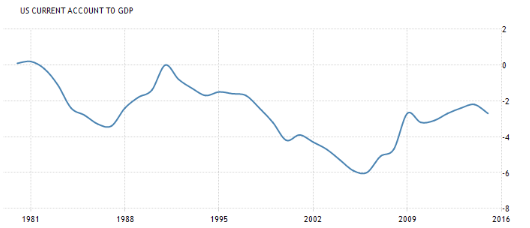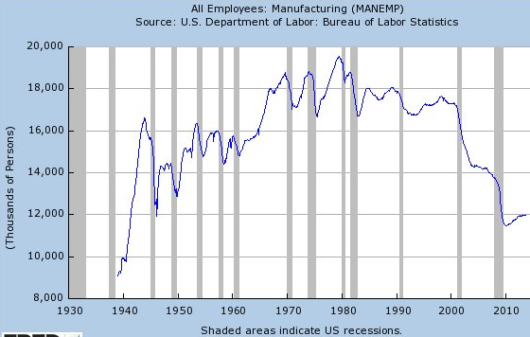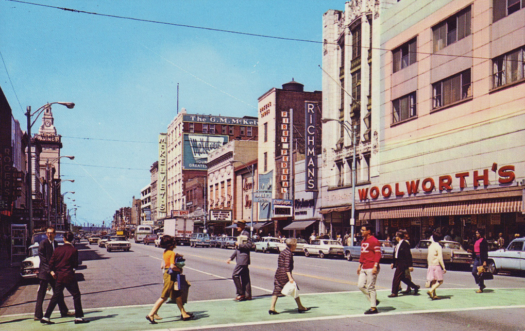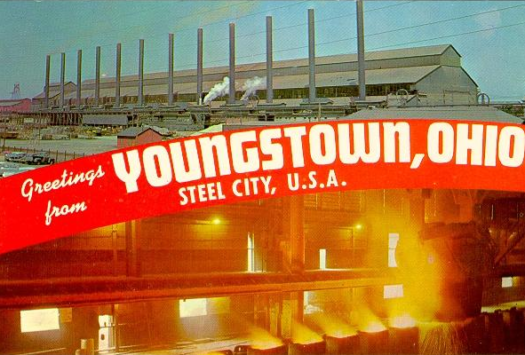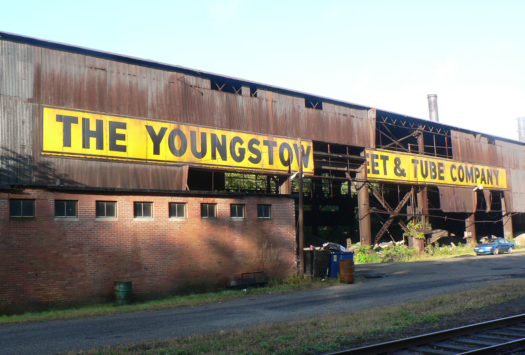One thing that frustrates me is that I have to go through life listening to tiresome arguments from the 99.9% of people who are innumerate. Here are a few recent examples:
1. “The polls were wrong about the election.” That’s true of some of the state polls, but the national polls were roughly correct. They predicted that Hillary would gain about 4.5 million more votes than Trump. We still don’t know where it will end up (her margin widens daily), but it looks like she’ll end up nearly 3 million ahead. If you had told most pundits that Hillary would have won 3 million more votes than Trump, most would have assumed that she would win the election. The mistake was not so much the polls, but rather the assumption that a comfortable margin in the popular vote would be enough. That’s not an unreasonable mistake; in the past 120 years there was only one other split decision (in 2000), and in that case the popular vote was exceedingly close. It’s like the housing price collapse of 2006-09; we all knew it was theoretically possible for someone with a multi-million popular vote margin to lose the electoral college, but didn’t expect it because we had not seen it in modern times.
2. “If elections were determined by popular vote, Trump would have campaigned differently and most likely would have won the popular vote.” Of course that’s theoretically possible, but the odds are overwhelmingly against. First, because the new strategy for both candidates would have involved more emphasis on getting out the vote in the non-swing states. But the non-swing states went for Hillary by nearly 4%. So if increased campaigning had boosted the turnout in places like California, then Hillary would have very likely won by even more. Thus the big popular vote margin actually understates what that margin would have been in a direct election of the President. And second, people don’t seem to understand how massive a popular vote margin of nearly 3 million actually is. It would be extremely hard to generate another 3 million votes for Trump, or more precisely an amount of additional votes that’s 3 million more than the other campaign generated. Face facts: Hillary didn’t lose because people didn’t like her; she was more popular than Trump on Election Day. Trump won because the election was rigged by the Founding Fathers.
3. “Neoliberal economists who promoted free trade are to blame for Trump.” This is wrong for all sorts of reasons. First of all, the direct loss of jobs due to imports is largely offset by jobs created in other sectors like exports and construction. Furthermore, automation costs far more jobs than trade. And finally, the actual loss of jobs due to neoliberal policies like Nafta and GATT are only a tiny fraction of jobs lost to imports in general. Even if we had not liberalized trade in recent decades, we’d still be importing lots of cheap manufactured goods from East Asia and Mexico, and have a huge CA deficit. If you take 10% of 10% of 10%, you end up with a really tiny number, and yet a commenter recently sent me an article by Notre Dame economist David Ruccio claiming that neoliberal economists were to blame for Trump:
Are mainstream economists responsible for electing Donald Trump?
I think they deserve at least part of the blame. So, as it turns out, does Dani Rodrick.
My argument is that, when mainstream economists in the United States embraced and celebrated neoliberalism—both the conservative and “left” versions—they created the conditions for Trump’s victory in the U.S. presidential election.
We are 0.001% to blame, at most. If economists don’t have a sense about what sort of numerical claims are plausible, who will?
4. I could cite many other examples. The claim that greater infrastructure spending would significantly boost US economic growth is absurd. It might boost it, but the US economy is far too large and diverse for a $550 billion infrastructure package to make much difference, especially during a period of 4.6% unemployment and monetary offset. Tax reform and deregulation are more promising, but even here the claims of 4% to 6% RGDP growth are ridiculous, at least over an extended period of time (I suppose one or two quarters are possible.) Trend RGDP growth during the 20th century averaged about 3%, under wildly different policy environments. I’m not saying policy had no impact (I’m a moderate supply-sider), but people tend to overrate the impact.
To give a sense of how hard it is to dramatically impact the macro economy, consider that the Trump people (wrongly) claim their Carrier victory will directly save 1000 jobs. Obama “created” about 6000 or 7000 jobs every single day over the past 7 years. A thousand jobs is not a drop in a bucket, it’s a particle of water vapor in a bucket. If Trump had that sort of “victory” every single day of his 8-year presidency, he’d still probably create far fewer jobs than Obama. James Pethokoukis had this to say about the banana republic-like Carrier deal:
American Enterprise Institute scholar Jimmy Pethokoukis told CNBC on Thursday that President-elect Donald Trump’s speech about his deal to keep Carrier jobs in the United States was “absolutely the worst speech by an American politician since 1984 when Walter Mondale promised to reverse Reaganomics.”
“The idea that American corporations are going to have to make business decisions, not based on the fact that we’ve created an ideal environment for economic growth in the United States, but out of fear of punitive actions based on who knows what criteria exactly from a presidential administration. I think that’s absolutely chilling,” he said.
He continued: “[Companies should not make decisions] based on fear that there are going to be tariffs, that they are going to have contracts taken away from them, or the president will attack an American corporation for trying to create a valuable product.”
He also suggested that if the Democrats had done something similar, the GOP would have freaked out. I can imagine Republicans complaining about this being a left-wing anti-business abuse of power, if Obama had done it.
Commenters often wrongly claim that I equated Trump and Hitler. Now “analysts” are indirectly comparing Trump and Hitler:
A source who has advised Trump’s transition team on security policy told Reuters last week the president-elect would start a “clean slate” with Duterte, and analysts see some similarities in their blunt style. . . .
Sometimes called the “Trump of the East” because of his mercurial ways, Duterte has threatened repeatedly to sever U.S. defense ties, saying he “hates” having foreign soldiers in his country.
Here’s an example of Duterte’s blunt style:
Philippines President Rodrigo Duterte on Friday compared his campaign to kill criminals to the Holocaust, saying he would like to “slaughter” millions of addicts just like Adolf Hitler “massacred” millions of Jewish people.
“Hitler massacred three million Jews. Now, there are 3 million drug addicts. … I’d be happy to slaughter them,” he told reporters early Friday, according to GMA News.
“You know my victims, I would like to be, all criminals, to finish the problem of my country and save the next generation from perdition,” he said.
No wonder Trump is anxious for Duterte to be one of the first heads of state to visit the White House:
U.S. President-elect Donald Trump invited Philippines leader Rodrigo Duterte to the White House next year during a “very engaging, animated” phone conversation, a Duterte aide said on Friday, amid rocky relations between their two countries.
They have so much in common. Trump likes reading books of Hitler’s speeches and says:
You know I’m proud to have that German blood, there’s no question about it. Great stuff.
And Duterte sees mass murder as the “final solution” to the drug problem.
PS. But I’m not equating Trump and Hitler-loving dictators; I leave that to the “analysts”.
PPS. Last time I mentioned the Duterte quotation, a commenter defended him by pointing to his high approval rating in polls. And he didn’t seem to be kidding.


